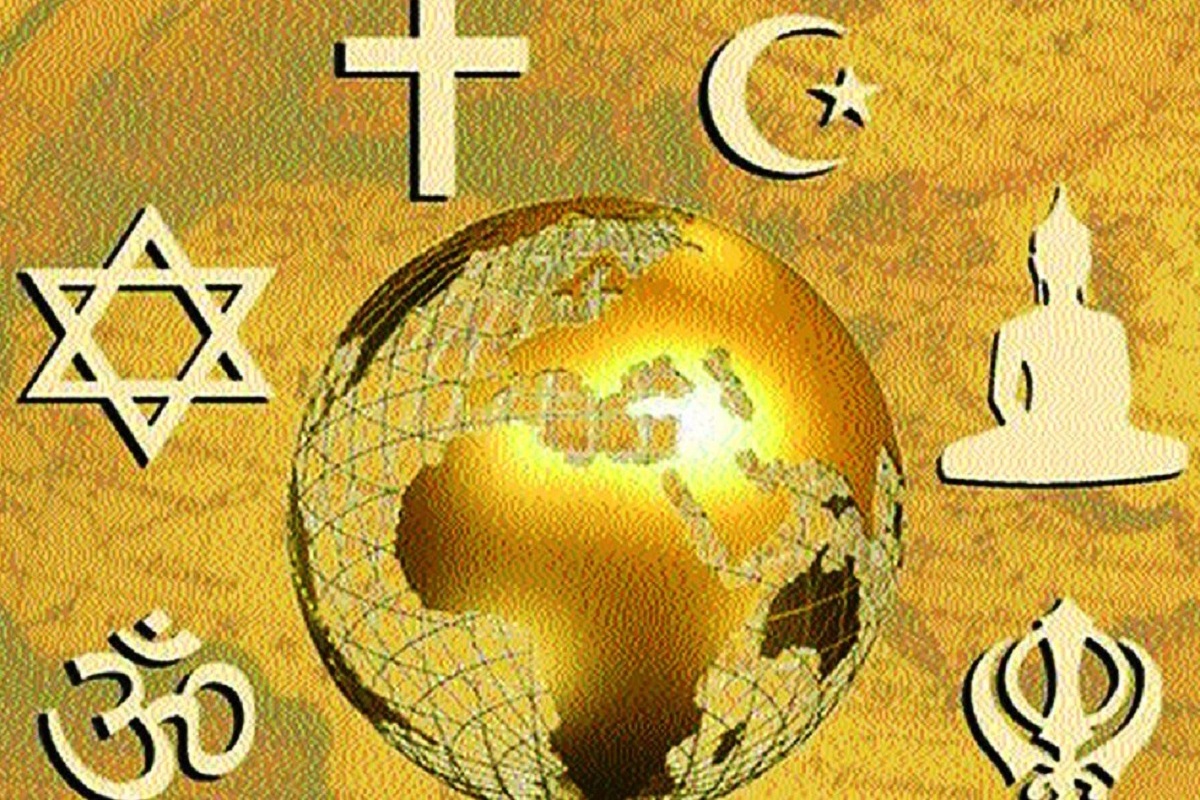In the 2000-year history of Christianity, never before has Easter been so lonely. On 12 April, Pope Francis presided over the Easter mass in an empty Papal Basilica, overlooked by an equally empty St. Peter’s Square. Millions did listen though, via the internet. On Good Friday, he had to walk alone in the empty Square to reenact the poignant scene of Christ’s execution, an event usually attended by thousands of Christians.
But by and large, Christian priests and folks slept peacefully over the weekend, though some among the devout felt betrayed and let down, by their Governments or by God. In the 1400-year history of Islam, never before have Muslims been shut out of their holiest shrines. With Saudi Arabia shutting Masjid al-Haram, the Grand Mosque in Mecca, and Al- Masjid an-Nabawi built by the Prophet in Medina, the annual Haj has been suspended.
Advertisement
With the Al Aqsa Mosque in Jerusalem also closed for prayers, three of the holiest shrines of Islam are out of bounds of the worshippers. Iran, one of the worst corona- hit countries and ruled by the fundamentalist clergy, has also suspended pilgrimage to the holy city of Qom and other places. The merciful Allah does not seem to be unduly perturbed by these disruptions to his worship. Likewise, the Buddhist New Year, the Sikh Vaisakhi and the Hindu Ram Navami were also celebrated in private.
The presiding deities at Venkateswara at Tirupati, Viswanath at Kashi, Siddhivinayak at Mumbai and Vaishnodevi have all gracefully reconciled themselves to their solitary existence; maybe they are enjoying the solitude after millennia of assaults by noisy and unruly crowds of devotees. Of course, prejudices die hard and fanatics will always exist. Like the diehard Tablighi Jamaat followers in India who believed that the Allah merciful will protect them from the virus and nothing can happen to Muslims, the Mullahs in Pakistan, in outrageous defiance of their Government, are conducting congregational prayers in mosques and will continue to do so during the holy month of Ramzan, undeterred by the soaring numbers of the afflicted and the dead.
The dysfunctional government of Imran Khan meekly capitulated before the Mullahs whose sermons apparently are far more important than human lives. A Maronite Catholic priest in Beirut refused to use any mask or sanitiser, in the belief that Jesus was his protection. Georgian priests continued to offer consecrated bread and wine to the worshippers in the unshakable conviction that these offerings are divine and hence harmless. Some Christians asserted that communion being the body and blood of Christ cannot ever get infected.
The fiery Iraqi cleric, Muqtada al-Sadr, proclaimed that coronavirus to be a punishment for gay marriage. He is, however, not alone ~ many pious believers reckon that the pandemic as divine displeasure for the many sins of flesh and spirit of imperfect humans. However, leaving aside these few aberrations, most people belonging to all faiths across the world have behaved responsibly, rationally and pragmatically. Priests, Bishops, Imams, Rabbis and Granthis everywhere are heeding to their Governments’ call for suspending all religious services while urging their faithfuls to worship God from the confines of their homes.
In India where politics and religion are inseparable and their relationship is almost symbiotic, the Government has banned all gatherings in religious establishments cutting across faiths, and is enforcing the ban in a no-nonsense manner. Religion actually is in crisis, and has indeed been responsible for much of the current crisis. But for the crass stupidity of the Tablighis in India that led to a huge spike in the contagion, their 16,000 strong assembly in Malaysia in February that caused the spread of the deadly virus to many other countries, the ignorance and arrogance of the medieval Mullahs in Pakistan who refused to keep their faithful away from the packed mosques, religious congregations in South Korea and New York, etc., the virus would not have caused such widespread affliction and death in the entire world.
The crisis and the hardships are also turning some faithful followers away from religion. They are asking why a merciful God to whom people pray for guidance and protection would unleash such terror upon them, and doubting, like the dying Jesus on the Cross, “My God, my God, why have you forsaken me?” Organised religion is indeed retreating from public into private space. Spirituality and toxicity are the two sides of the coin named religion. While in the public space, in the name of spirituality, it often spreads toxicity and hatred against other faiths, in the private space, especially in uneasy times like this, it plays a benign role by bringing peace and solace to stressed individuals and families without any of its negative effects that create cleavages among societies, pollute minds and set humans against humans.
The coronavirus is reconfiguring and redefining religion, bringing its countless fissures and faultlines to the fore, unravelling its contradictions and exposing the essence of its rituals for what they actually are ~ useless. And not only useless, dangerous too. As the Pope has said, the pandemic is indeed “a time to separate that which is necessary from that which is not”. If we can learn to do just that, the world after corona would certainly be a better place for humanity to live. Since time immemorial, rituals have been the principal instruments through which religion has exercised its power over individuals.
In every crisis, it has rediscovered new strength in old rituals and has thus reinforced its power. Today the coronavirus has presented an absurd reality to religion ~ it has forced it to abandon rituals and reduced the churches, mosques, temples and synagogues to irrelevance. Religion does not yet know how to adapt to this new reality, but it is trying hard. Religious establishments are offering worships through livestreaming of their services ~ a rather sterile substitute. Religion today is badly in need of a miracle. For a change, religious leaders and governments are focussing their attention towards their own practices rather than denigrating those of other faiths.
They are trying to find ways in which religion can be combined with technology, and with some science as well. This is something novel in the history of humanity, because religion has always looked upon science as a usurper, an appropriator of territories that once exclusively belonged to it and which it has never been able to reclaim. Religion has fostered violence and terrorism far worse than the bloodiest of wars. It is the worst virus that eats into the body politic. It is a lethal pathogen against which humanity, like the coronavirus, has not yet found a cure and thrives on fear much more than on love.
It has galvanised people more often to destroy rather than create, divide rather than unite, misunderstand rather than empathise. God, if he exists at all, has many reasons to be angry with man for what he has done to his creation, this beautiful earth that is now slowly reviving while humans have been forced to restrain their greedy activities, albeit temporarily. Nature is redeeming herself. In exiling religion permanently from the churches, mosques and temples to homes where it truly belongs, society has a rare opportunity to redeem itself for all future times.
As behavioural economics tells us, a desired behaviour can be promoted by state intervention. A common example that is often cited is the huge difference in organ donation rates between two advanced countries, Canada (2.5 per cent) and Austria (99 per cent). The reason is the way organ donation is designed is these countries. In Canada, one who wants to donate has to register oneself for such donation and the process of registration is rather cumbersome. In Austria, where donation is treated as normal behaviour or default, one who does not want to donate has to deregister oneself following an equally cumbersome procedure.
Deregistration thus imposes a transaction cost that deters people from opting out of a desired behaviour. If the State wants people to worship from home rather than from temples, a similar transaction cost can be imposed upon attendance at the temple by carefully designing a choice architecture. A crisis is not to be wasted. Corona has already taught and prepared people to pray from home. They probably will not mind continuing to do so without the intervention of the priests and mullahs in the future. In our self-isolation, may we ourselves become our own shrines. May God dwell only in the sanctuary of our hearts, and may the clergy find a new vocation. If that happens, that would indeed be a miracle.
(The writer is a commentator. Opinions are personal)
















